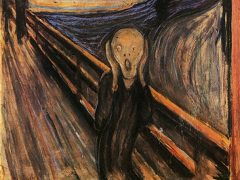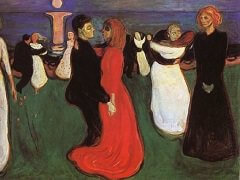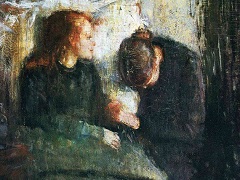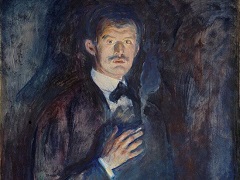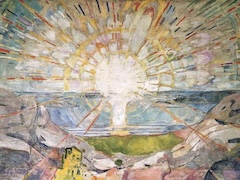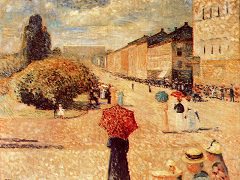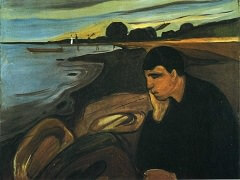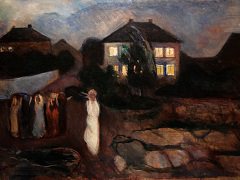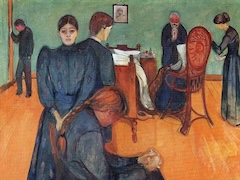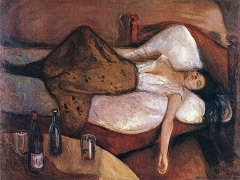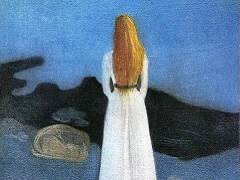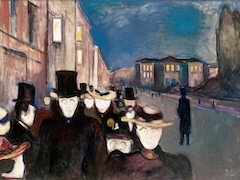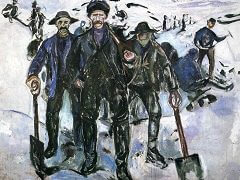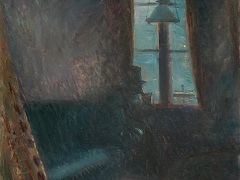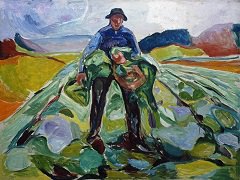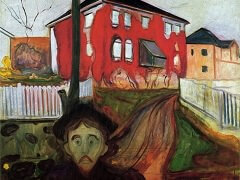Separation, 1896 by Edvard Munch

Over and over again in his pictures of the middle 1890s Munch used variations of the same images - the column of light on the sea, the blonde giri on the beach, the lustful woman in red, the older woman in black, the unhappy man, etc - juggling them in various combinations to symbolize different human conditions and relations. Here he illustrates the man's sorrow at parting from his love - the end of the story begun in The Kiss. As in other cases, the picture consists of two components, the objective in the foreground, in which the protagonist may be either frontal and active, as here, or in profile and contemplative, and the subjective in the background, the image of the past in his or her mind's eye. The love-lorn man appears about to move forward, into the future, but his path is blocked by the crimson plant, again possibly intended as a mandrake, with its love and death symbolism. He seems trapped in the present. Moreover the girl's long hair floats across into his world and caresses his head, tying him to his vision, allowing him no escape from his memory. By means of linear fusion the girl's flowing curves are assimilated into the flat, art nouveau pattern of the shoreline, creating a unified and feminized vision of the past. The man's figure, on the other hand, with its black silhouette and more circumstantial contours, unites with the bloody plant to form a more articulated pattern.

